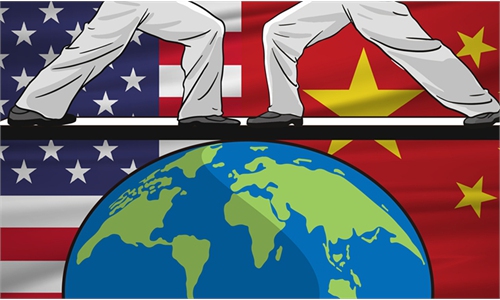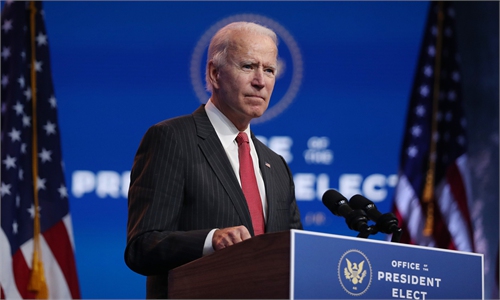SOURCE / MARKETS
FTSE Russell’s index move ‘bad example’
May disrupt overseas capital inflows into mainland stocks, but influence limited

Photo: CFP
Index provider FTSE Russell's decision on Friday to remove eight Chinese companies named by the Trump administration as having alleged ties to the Chinese military from some of its indices shows the company's political prejudice and provocative attitude toward Chinese companies, and it sets a bad example for global index providers that have been increasingly open to Chinese stocks in recent years, experts said on Sunday.
The London-based index provider said on Friday that it would remove the eight companies, which include China Railway Construction Corp and surveillance camera maker Hikvision, from its FTSE global equity indices and the FTSE China A Inclusion index on December 21.
All eight companies are on a blacklist compiled by the US government recently, as US President Donald Trump signed an executive order on November 12 to prohibit Americans from investing in 31 Chinese companies that the White House claimed are owned or controlled by the Chinese military.
The eight companies had a combined market capitalization of $143.1 billion at the close of trading on Friday, Bloomberg data showed.
However, some of the blacklisted Chinese companies like China Mobile and China National Offshore Oil Corp were not on the list of companies that FTSE Russell said it would remove.
The index compiler also said that it would remove additional constituents if the US government added them to sanctions lists.
Dong Dengxin, director of the Finance and Securities Institute at the Wuhan University of Science and Technology, criticized FTSE Russell's action as "politicizing financial issues", which he said runs counter to the principle of free markets and is "shameful".
"FTSE Russell is pandering to the pressure of US politicians and is initiating a provocation against Chinese companies. This is a very unfriendly move and might set a bad example among global index providers," he told the Global Times on Sunday.
FTSE Russell didn't respond to an interview request by the Global Times as of press time.
According to media reports, some other global index makers are evaluating the executive order and considering whether to exclude relevant stocks from their indices. MSCI, for example, will make a decision in a few days, according to the Financial Times. The Nasdaq is also reportedly evaluating the issue and could announce its decision shortly.
The FTSE Russell move, and potential similar actions by other index companies, comes as Trump is using the final weeks of his presidency to crack down on China, before US president-elect Joe Biden is set to take office.
According to Dong, Biden's policy direction toward China is still unclear. "It's possible that he may preserve some of the policies launched by Trump, as Biden also sees China as a big competitor to the US and is unlikely to let his guard down against Chinese companies," he said.
Xi Junyang, a professor at the Shanghai University of Finance and Economics, also noted that Biden is unlikely to reverse the Trump administration's crackdowns on China's financial sector because he wouldn't want to challenge the rising anti-China sentiment in the US.
He also said that FTSE Russell's action to drop Chinese companies might be out of concern that those stocks' prices will slump under the US crackdown.
"It should be a commercial instead of a political decision," he told the Global Times on Sunday.
Both experts noted that the exclusion would have a negative impact on the Chinese mainland stock markets, though that's unlikely to be very drastic.
"FTSE Russell's action is a disruption to international capital's interest in mainland markets, but the influence on A shares would be light because the inflow of capital thorough global indices' constituent stocks is limited in value," Dong said, adding that such an exclusion won't change the appeal of mainland financial markets to overseas investors with the progress and increasing openness of mainland capital markets.
According to the FTSE's November 30 fact sheet, there are 1,021 Chinese companies in the FTSE All World Index, a benchmark of 3,974 large and mid-cap stocks within the Global Equity Index Series family, with a 5.16-percent weight.




